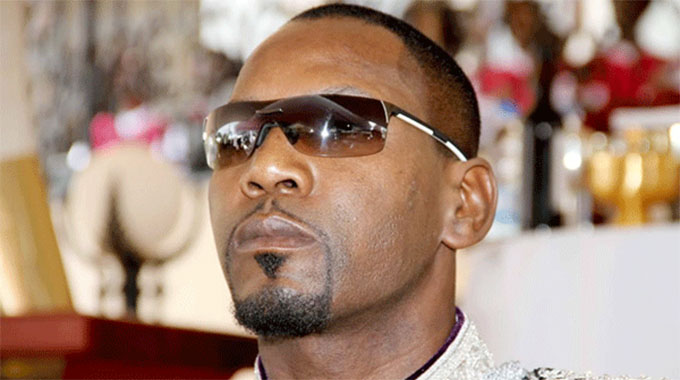‘Role of education is to create industry’

Tendai Manzvanzvike THE INTERVIEW
Are State universities offering “useful” and/or “useless degree” programmes? This has been the topic trending after our sister paper The Sunday Mail on March 3 published a story, “Government to scrap useless degrees”. Zimpapers Group Foreign Editor Tendai Manzvanzvike (TM) caught up with Minister of Higher Education, Science and Technology Development Professor Amon Murwira (AM) to get an understanding of such a major policy shift.
TM: Professor Murwira, degree holders are asking: what is a “useless degree”?
AM: First of all, I never said “useless” degrees. It was your headline for purposes of selling the newspaper. There is no list for “useful” and another for “useless degrees”. It’s about the system — whether all your degrees are following what we call the National Qualification Framework.
But let me contextualise the whole issue. There is no investment which we can put in a person through education so that they become useless. We don’t want useless education.
What we’re talking about is that we are remodelling Zimbabwe’s higher and tertiary education system.
TM: What does it mean?
AM: I have always maintained that in the past we used to sit at an indaba.
The responsibility of an indaba was to teach people to do something. You could be taught to make a hoe or an axe.
After several indaba sessions, you would then emerge an expert. So, universities or schools are our modern day indabas.
Be that as it may be, they must be useful, just like our yesteryear indabas. Do you get it?
That was productive education. Come colonialism. You were being taught English?
TM: Yes!
AM: And you were taught to work in a factory produced by a university in Britain. The university was there doing its real work in the UK, saying, we think we can produce a steel plant, and then they bring ZISCO, for you.
While at university, your ambition was to work for Zisco, as if Zisco fell from the sky, but yet it came from another university.
The indabas that produced our industry here were in UK universities. The role of the University of Rhodesia then was to produce people that would work for that industry, but they didn’t necessarily have to think how a steel plant is designed. Do you get that?
TM: Yes, but did it have to take more than 30 years to have this reawakening?
AM: It doesn’t matter how long it takes, as long as you realise it.
Start it when you can start it. If today you make a solar lamp, and people say why didn’t you do it a long time ago since you always had the sunshine, it’s not a useful question?
The job of universities is to produce knowledge that results in goods and services. If you go to an indaba that does not produce anything tangible, that is a useless indaba.
The colonial period’s role was to produce a worker, who will always ask for a job from baas, who perfectly designed the job while in England. And then you think as though that industry fell from the sky. Who thought about it in the first place?
TM: If we were not part of the designing process, tell us what you are saying about “useless degrees”?
AM: We were never part of the grand plan. You know that when you design your system very well, you play around it, not knowing why, and not knowing who you are connected to.
Africa has had the tragedy of reading the wrong manual. Let me illustrate. I give you a Nokia phone, and a Samsung manual imprinted Nokia. You’ll live the rest of your life trying to solve a problem from that phone from a wrong manual.

The job of universities is to produce knowledge that results in goods and services, says Professor Murwira
There is too much superficiality in our people. We don’t want superficial people.
TM: What do you mean by that?
AM: We are modelling our education system, no longer this system where the thinkers are elsewhere, and we are trained to run the system, but not to think and design that system.
TM: You professors?
AM: All Zimbabweans and Africa, including you. We were taught how to run the system and not participate in its design. What it means is that when the then University of Rhodesia was set up, students would go and study for their degrees, and are then told that upon graduation, they should look for jobs from someone.
Is that person giving you a job also not born of woman, like you? So, why is it that it’s you who is looking for a job, while others are there to employ you? What kind of logic is that?
TM: But the reality is that despite what you’ve said, people are looking for jobs. Your comments?
AM: Yes! But then, we should ask ourselves what type of country we are? Where is the job coming from? Is it just falling from the sky so that you work?
We don’t want to discuss superficial things. Let’s go deep, and when we have gone deep and understood it, we will then solve the problem.
After we gained our Independence, all former colonised people in Africa, not just Zimbabwe, there comes a time when there’s a reawakening.
When we saw that all industries were dying, what was our language? We wanted to resuscitate them! I never heard anyone saying they wanted to start a new industry.
All they wanted was to resuscitate them because they are still in the mould of an industry designed by baas a long time ago. The design was that Africa provides the labour, and they’re the thought leaders.
TM: But that was still under colonialism.
AM: Do you know that Engineering syllabus at the University of Zimbabwe was that of 1974, and they only changed it in 2017, meaning that we were learning material from 1974, only changing it in 2017 because the feeling was — it cannot be tampered with. That’s the colonial mind-set. But did the world remain static?
I don’t just want to talk about the philosophy, I will also say, and therefore what do we do? Universities must necessarily give birth to our industries, and not vice versa. So, we must not be superficial because we might not come out of that bottomless pit.
The problem is in the design. The design of our education was: teach, research and community service, which they call consultancy. Goods and services cannot be produced by talkers. They must be produced by people who are designed to do so.
If your education is research, teaching and community service, when will you produce from your universities? This is the colonial design of a university.
TM: Critics will say you’re using colonialism as a scapegoat.
AM: That’s okay, but the truth is that they didn’t want you to do innovation and industrialisation. They would say we design the industry for you, learn to speak English and then you come and work.
Thus we produced people who are good speakers, but what does that mean?
But the issue is, how come some degrees cannot capacitate someone to be productive, while others are useful? What type of degrees are they, that when one finishes unenge wakangomira mustreet?
TM: Why is it like that?
AM: Because they were taught teaching, research and community service. Why then do you expect a hexagon to run like a wheel?
The education system that we have called 3.0 is what they were following, that is teaching a person to be ready to be told what to do by the boss.
This is a deep problem for us. Chakabaya chikatyokera. But at some point, you have to say no to the pain.
So, what we have done through the “Doctrine for Higher Education” is that we want to modernise and industrialise Zimbabwe.
How do you do that, when you don’t produce people who do? How do you produce goods and services because this is what industry does? This must come from our learned people. But everyone wants to work at Zisco, which has crumbled.
So, you are telling me that the whole of Zimbabwe gets educated in order to go and work for Zisco? Can it absorb you all?
Look at people at Glen View Area 8 and Siyaso in Mbare. Those people don’t ask for jobs from anyone. These are graduates from polytechnics, because their teaching says: our minds, our hands and our destiny.
The design of the university that was obtaining is 3.0, but now, we want a university with a 5.0 design, which says from an idea to a product.
You cannot continue to think, and think. You see a pothole, and people will describe it graphically. And their conclusion: Ah, zvakaoma vakomana. But the solution for a learned person should be, “How do we fill it up?”
So, what we did is that we did a national skills audit. Look at the results. Agriculture, which is the mainstay of our economy has an 88 percent deficit; 95 percent for health, etc.
We have a 95 percent literacy rate, but an average 38 percent skills level. Thus we cannot continue running an education system like this. This is why people speak such fluent English. On social media, they shout out, but not solution proffered. The language is “resuscitate”.
TM: They resort to that because there are no resources for them to be productive.
AM: Which resources? This (the brain) is the resource. If you see that your import bill is 90 percent let’s say, importing everything — being a country of buyers — it means that we are importing knowledge. Tiri kutenga njere because knowledge makes goods and services. So, if you have 90 percent imports, it means that you’re using 10 percent of your brain. We cannot continue with that kind of education system.
TM: But aren’t those skills and knowledge in the Diaspora?
AM: That’s a myth. Our education system was producing workers. They go and work for companies that are already arranged. They find everything in place, and then fit into whatever area.
TM: Because they are still coming from a 3.0 mould education system?
AM: Yes! If they come back home, they will still look for jobs. They cannot even set up their own.
But getting back to where we started, there no useless degree, but a degree becomes useless if it does not have skills.
Any degree can be useless; any degree can be useless. If you have an Engineering degree, but have never dealt with the tools of the trade, even a shovel, what does that mean? How do you call yourself an agricultural scientist when you never went into the field?
So, it’s not the name of the degree. It is how it is done that makes it useful or useless.
TM: Do you think that this context helps!
AM: You just wanted to sell your paper. It’s not a list of this one (degree) out; this one in. It’s about the way we do degrees: do they give skills; do they give knowledge, because skills and knowledge must be combined.
In the meantime, there is too much talk, without doing.
TM: Theorising too much?
AM: Yes. So, whether you have an Engineering degree, but never touched a car, no, it’s a label and not a level. It’s not the name of degree that matters. It is how degrees are done that makes them useful or useless.
You can have a degree in Shona, and then start writing novels like (Charles) Mungoshi.
This is what we call useful degree. Not for someone to say they studied literature, but they can’t even write a page. What kind of Literature degree is that?
This is the context.
But basically, the issue is that the prowess of our education is going to be seen by the reduction in the import bill; by a reduction in the number of people that are looking for jobs, and in actual fact, if Zimbabweans are very learned and they have got that kind of education that we call 5.0, we will have a labour deficit, and start to import labour.
Countries are importing labour because there is an abundance of knowledge over and above people that can work in your factories.
At the end of the day, everyone will have his/her own factory, and no one would want to work for another person, so we start importing labour. That’s how countries are designed.
Therefore, we are designing our education system so that it becomes what we call 5.0 — from the mind to the good; from the mind to service.
Thus we are not blaming people with degrees, but we are designing the system so that even those who went through the 3.0 education system, can convert themselves to 5.0. The role of education is to create industry.










Comments